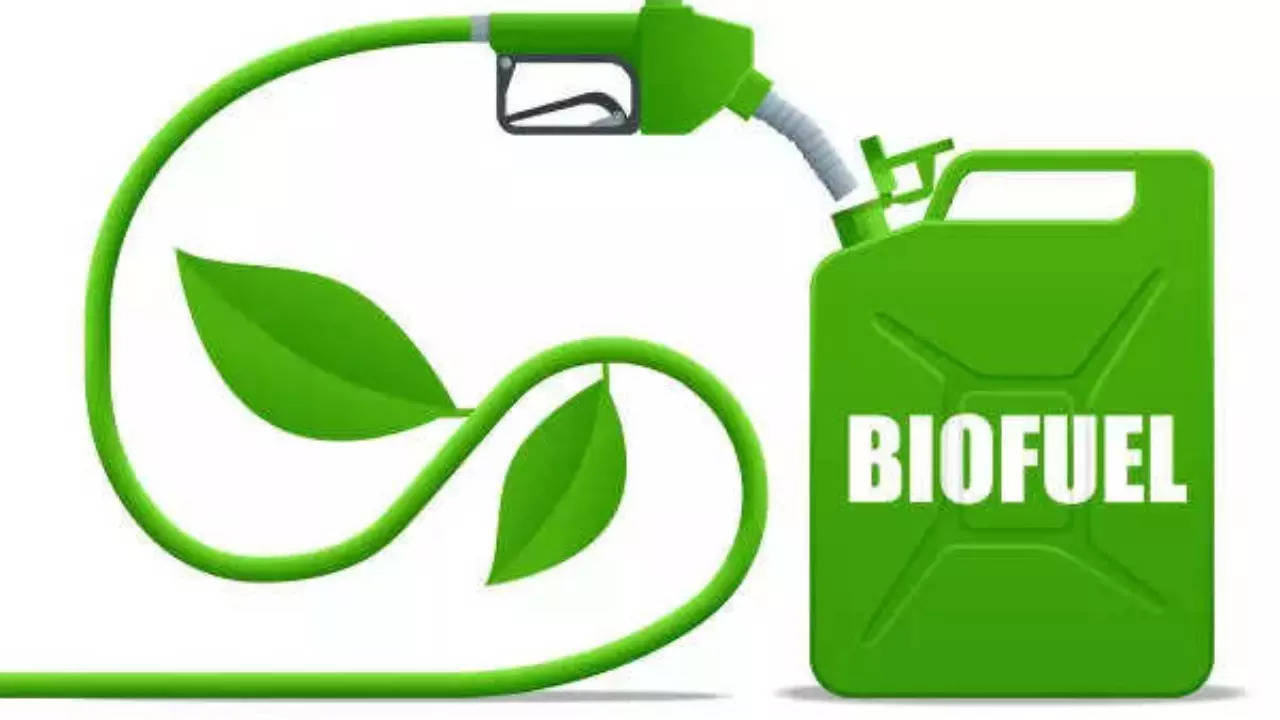
Biofuel is a safe, environment-friendly fuel that can be a great alternative to petrol and diesel. Biodiesel is the upgraded form of biofuel that is extracted from vegetable or animal-fat-based renewable fuel.
Biofuel will help India reduce its dependence on diesel imports as its combustion properties are related to diesel.
On rough estimate, Delhi and Gurugram together consume 16,99,000 tonnes of diesel a year. Hypothetically, if 5% of biodiesel is blended with conventional fuels (Petrol and Diesel) then 84,950 tonnes of diesel can be saved every year.
Q: Why do we need biofuel in the automobile industry?
A. There are many reasons why the automobile industry is willing to switch to biofuels. Following are some of them:-
1.Biofuels are non-toxic, biodegradable, and release less pollutants when they are burnt. Biofuels can be utilized in their pure form (B100) or can be mixed with petroleum diesel.
2.Biofuels have minimum exhaust emissions as compared to conventional fuels, thus leading to reduced toxicity.
3.In comparison to conventional fuels, they are safer to handle, and the quality of biofuel is governed by ASTM D 6751 quality parameters.
4.Major reasons for switching to biofuel are the environment-friendly properties, as they provide a major decrease in global warming and smog. They don’t produce harmful chemicals and have no unpleasant odour.
5.The Environment Protection Agency (EPA) has permitted biofuel as the only substitute fuel for other fuels. It has cleared all the Health-Effects tests of the Clean Air Act.
6.Biodiesel is much more affordable than conventional ones. Due to the fact that they are made up of vegetable oil or animal faeces which are more economical than fossil fuels.
7.A few common blends of biodiesel are B2 (2% biodiesel, and 98% diesel), B20 (20% biodiesel, and 80% Petrodiesel), and B5 (5% Biodiesel, and 95% Petrodiesel).
8.The lack of sulphur in 100% biodiesel increases the life of catalytic converters. The lubricating properties of biodiesel may contribute to increasing the lifetime length of your vehicle’s engine.
Q: How can biodiesel be produced?
A. Biodiesel is extracted via a chemical method known as transesterification, where the glycerin is removed from the vegetable or fat oil. This gives two products in the end, first is methyl esters (the scientific name for biodiesel), and glycerin, a byproduct essentially used in soaps and other products.
Q: What is the government’s take on biofuels in the automobile industry?
A. The government of India came up with the National Policy on Biofuels in 2018, which incorporates the use of biodiesel to fulfill the requirements of energy security in India. In 2018, the Union Minister for for Transport & Highways, Nitin Gadkari, promoted the use of biodiesel fuel in the country to minimize oil imports in India. In 2021, Gadkari said he will make it compulsory for automobile manufacturers to produce cars made of 100% biodiesel fuel.
India contributes only 1% of the world’s biofuel production, this alternative fuel is a long road. However, the central government is supporting domestic makers like UCO aggregator, Aris Bioenergy, and others to invest in the market.
Q: How the other countries use biofuels in cars?
A. Several countries use a blend of petrol/diesel and biodiesel to run their vehicles. Bioethanol, a common type of biodiesel, is mixed with petrol in cars and it doesn’t require any engine modification. Petrol car manufacturers can use E10, without changing their engines.
One such example is European countries, which have already started adding biodiesel to their cars. ‘SP95-E10’ fuel is also called ‘E10’ as it carries up to 10% of bioethanol in it. It is available in petrol stations in Germany, Denmark, Hungary, Belgium, and others.
Q: What are flex-fuel vehicles?
A. Vehicles which use fuel labelled as ‘E85’ are known as flex-fuel vehicles. The fuel is available at European Service Stations where the blend is of 85:15 ratio of bioethanol and petrol respectively. Not any ordinary vehicle can be a ‘flexible fuel’ vehicle as they are not suitable without engine upgrades. In Brazil, 80% of light vehicles carry flexible fuel engines.
Q: Does biofuel hold the future of the automobile industry?
A. Yes, biofuel can be a great alternative to conventional fuels in India, though it is not yet fully developed. The government is promoting EVs more than biofuels, thus a switch can be expected to EVs and Hybrids but not biofuels soon. There is no clear path for the production and consumption of biofuel in India.
Q: What are the plans for biofuel cars in India?
A. The auto industry is moving towards biofuel usage in vehicles. Maruti Suzuki’s Chairman RC Bhargava said that Maruti is working on the development of biofuel cars. Narendra Modi, Prime Minister of India, also confirmed the coming of Maruti Suzuki’s biofuel car.

















